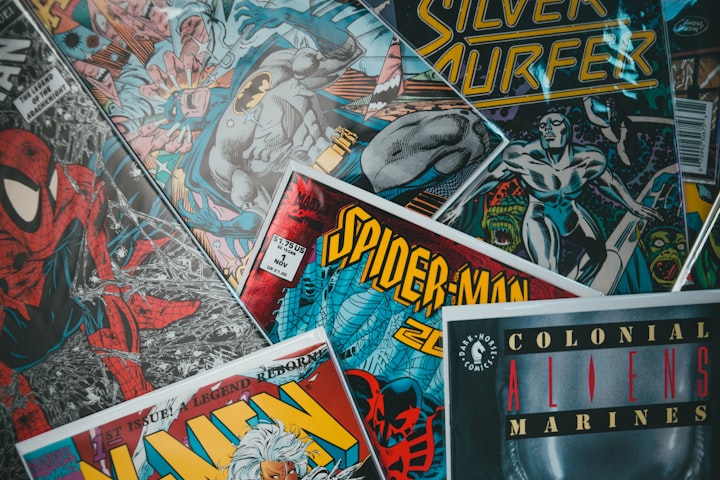
It was normally warm by this time of year but winter had been extended on this particular countryside; due to an early reaping. Where there had once been a forest, grown over an old farm, there was now nothing. The farmer’s plot had been laid bare, revealing the family headstones uphill from the pond where once they might have drawn water. If you did the math on the graves, you’d discover that the parents outlived their children. Their youngest only reached the age of seven before succumbing to whatever mysterious threat may have claimed his life in 1874.
They levelled it – might be another way of saying it – for the construction of a new movie theater. And Ty had brought his friend from photography class out to document the desolation; and to test a new tripod he had just bought for class. The scene was well set. The blatant disregard for sentimentality in the name of capitalism was an excellent frame for their rebellious teenage disillusionment. And a forest filled with years of childhood memory that had been destroyed in under a week, the perfect subject. The biting chill they felt created a suffering that was transformed into a mirror by their art.
“What’s it look like?” Ty asked his friend as he peered through the viewfinder.
“I wish we were doing this on film.” Hank said without turning around. “It’s a situation that could really benefit from that type of grain.” Hank had always been a purist when it came to photography. It was something Ty really admired.
“Yeah, I always thought film brought the image closer to capturing the real thing.” He said, trying to impress his friend.
“Well, it’s about the level of intimacy you want to achieve.” Hank was busy adjusting settings on his camera. “Once you take the photo, you create an image that’s completely separate from the reality you’ve… sampled it from. You could make the argument that digital photography is closer to the real thing, simply because it has a better image quality. There’s arguments for color accuracy, for motion, for developing versus printing, but in the end,” Hank removed the glove from his hand in order to click the shutter, “the image you create is nothing like ‘the real thing.’”
He was the real artist. Ty’s love of photography was just a fascination, or at best, an excuse to skip class so he could take pictures for the school newspaper.
“…Right.” Ty could feel himself blushing, and resolved to blame it on the cold should any questions be asked.
Hank turned around, smiling. “You understand, right? I don’t want to show anyone this empty lot.” He grabbed Ty’s shoulders. “You brought me here so I could show people the feeling you got when you saw your forest being torn down.”
Their eyes locked for a moment and Ty was pierced by this empathy. He couldn’t believe that Hank might try to look at this photo through his lens, so to speak.
“C’mon.” Hank said, giving him a pat. “I want to get a few shots from down by the pond. You grab the camera; I’ll pack up the tripod. You can tell me that story again while we walk.” Hank released him and started to unscrew the camera from its mount.
“What story?” Ty asked, a little confused.
“The one you used to get me out here.”
“The one about the forest, and how I found the pond and, “
“The story, tell me the story. Make it into art. I want to feel inspired.”
“Oh, ok.” Ty was slightly abashed, but, as Hank handed him the camera and reduced the tripod down to an easy carrying size, he began to tell the old story of how he explored the forest. “My father taught me how to track animals when I was very young. He showed me how the deer run single file, and carve a path through the underbrush. He said he would take me hunting when I was older, but I never wanted to hunt. I wanted to run – like the deer did – through the forest.
“And every time he brought me into the woods, I would escape him. Because he was too tall to run on the trails. The deer only cleared about four feet worth of bush. He would be hunched over fighting through branches, but I was the perfect height. Just as tall as a deer, I could sprint upright. Running as fast as I could go, I’d fly down these highways into the deep wood. There used to be meadows, where they would come to graze. And I chased them out like a cat playing with mice.” Ty stopped to laugh and wipe away the ghost of a tear. “Later on, when I was older, but not so tall I couldn’t run, I’d go further into the forest. I started to bring my friends back here and eventually, my boyfriend. We found the pond while we were running. It was hidden so well that when I tripped over a root, I fell into it face first. Once we knew it was there, we came back every day. Then one summer’s night, on a full moon, I had my first kiss out there, swimming naked in the water.” He paused a minute to bask in the memory.
“Whoa, hot stuff.” Hank chided him.
Ty smiled and blushed again. “He started coming out here himself. And he found the graveyard.” The pair were walking past it at that moment, as if to speak of the devil. They were halfway to the pond. “I had always thought the woods were mine up until that point. That I knew all their secrets and no one ran in them except for me. But then he showed me the graveyard… started to bring his friends back here. We got taller, and the branches above the deer trails started to break. You could see where other kids had gone through with knives to make them easier to run. Beer cans and cigarette butts showed up at the graveyard every so often. I came out to the woods a lot less.” Ty’s voice sort of trailed off. He looked around at the barren landscape: the pond, now frozen from lack of shelter by the trees; the bulldozer’s tracks in the dirt.
“I’m glad that story had a happy ending.” Hank laughed. Ty put his hands in his pockets and kicked the dirt a little. “Oh, come on, you know I didn’t mean it like that.” He said, trying to catch his friend’s eye. But Ty just kept looking at the dirt. “Here. Right here’s good.”
They were still a short distance from the pond when Hank started to unfold the tripod. He took the camera away from Ty, mounted it and put him in frame, a little off center. Ty didn’t like this. His hands by his sides and his face cracking under the pressure of his own nostalgia, the wind cut across the icy water and pushed into Ty’s back. Hank finished adjusting the settings on his camera and… click.
“STOP IT!” Ty broke. He started to cry.
Hank jumped.
“Isn’t anything sacred to you?”
“Ty… buddy.” Hank walked up to hug his friend but he turned away.
“No.” He just sobbed into his jacket.
Hank stood there at a loss. He wasn’t sure what he had done. He had taken the photo like he said he would. And it was quite a good one.
“Can’t you let me mourn for one second before you put me in your stupid pictures?”
“But…” Hank said carefully. “I thought that’s why we came. I thought that’s what you wanted. So that we could show the world how,”
“The world won’t understand! Nobody will understand!” Ty’s voice cracked. “They weren’t there. You weren’t there! You’re not an artist! You’re just a phony!”
He stormed off to sit by the shore of the frozen pond. Hank sighed and watched him go. He had thought things might get a little emotional. In fact, it’s what he had hoped for. They had come to make art. And to fill it with emotional content. He thought Ty understood that.
He stood behind his camera and aimed it at the pond once again. He used the rule of thirds. It was an old photographer’s rule to have the foreground, midground and background take up equal space in the photo. Ty sat on the threshold between the first and second third, breaking the thinnest part of the ice that had frozen to the shore. Hank changed his aperture, adjusted the shutter speed, stepped back from his camera, and turned it off.





Comments
There are no comments for this story
Be the first to respond and start the conversation.